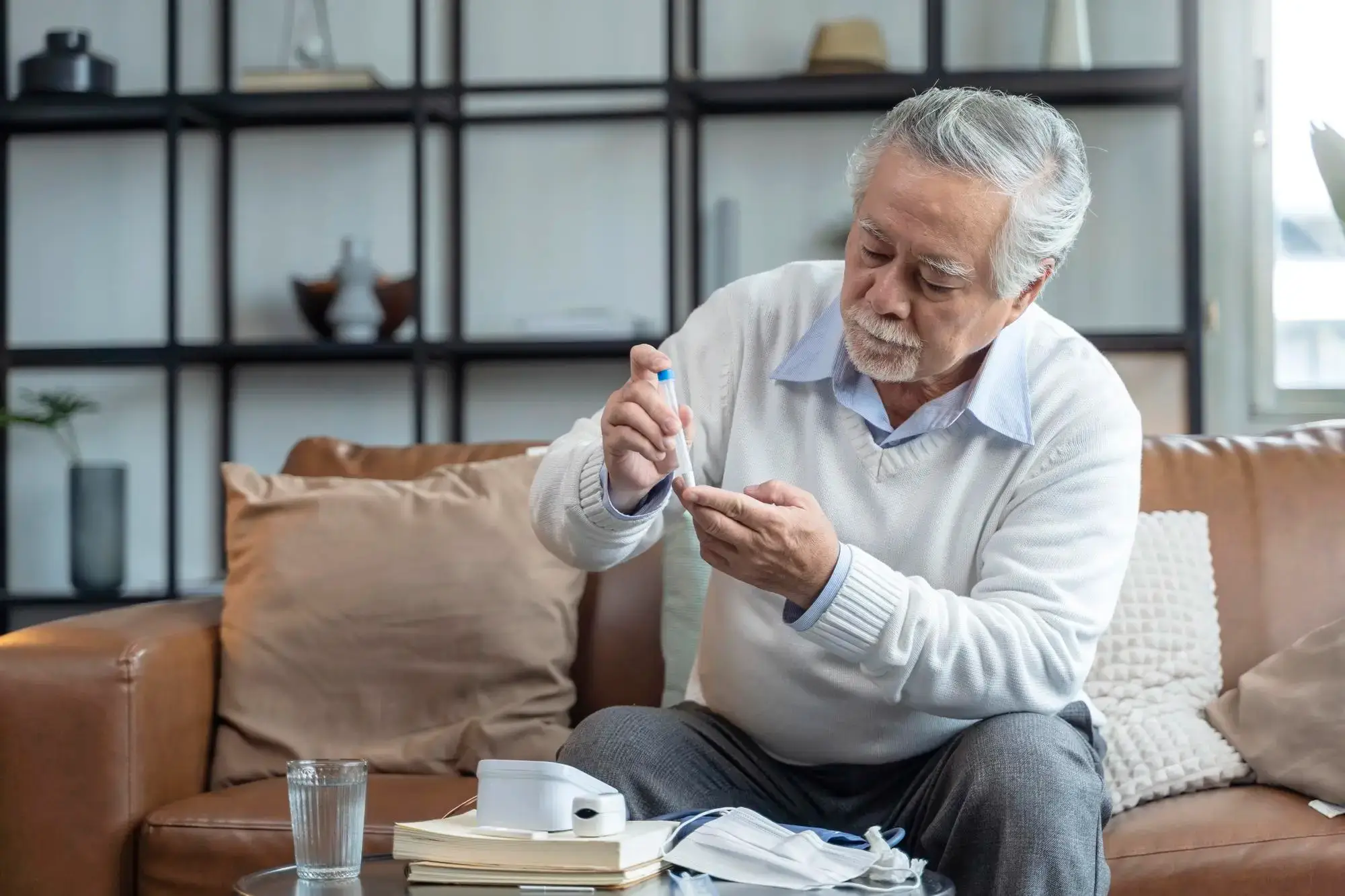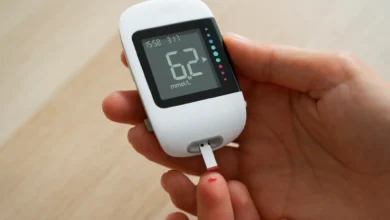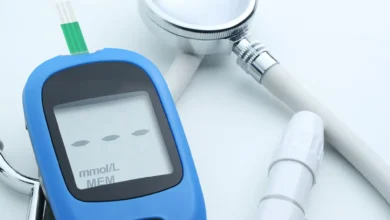A diabetic patient must be followed up during Ramadan and before, because diabetes is one of the diseases that is affected by fasting as a result of the possibility of high or low blood sugar during Ramadan. Diabetics must obtain the basic nutrients that the body needs in sufficient quantity, but at the same time, high blood sugar must be avoided. In their blood sugar through the tips and instructions contained in this article.
Fasting with a diabetic patient
A diabetic patient should see a healthcare provider before starting fasting , and it is preferable to do so at least 6 to 8 weeks before Ramadan , as this visit provides:
- Evaluating the diabetic patient’s health condition to determine whether or not he can fast during Ramadan.
- Control blood sugar, blood pressure, and fat levels and bring them within the normal range before starting fasting.
- Develop a nutritional plan to help control blood sugar levels during fasting, and help people who suffer from obesity to lose weight and get rid of their excess weight during Ramadan.
- Develop an appropriate treatment plan and adjust medication doses and times to suit the periods of fasting.
The health care provider studies the patient’s condition and his ability to fast , and this depends on the following factors:
- Type of diabetes.
- Medicines used to control blood sugar.
- Studying the possibility of experiencing low blood sugar attacks during Ramadan.
- The patient has diabetes complications or other health problems.
- Studying the patient’s experience with fasting in previous years.
Possible complications of fasting in a diabetic patient
A diabetic patient may develop some health complications during Ramadan while fasting, such as:
- Hypoglycemia: It is more common in patients with type 1 diabetes and is the most serious complication.
- High blood sugar: occurs when doses of medications are reduced significantly, and the patient becomes more susceptible to the possibility of developing diabetic ketoacidosis.
- Dehydration: Fasting is often done in hot and humid conditions; Which increases the risk of dehydration, and the most important causes of dehydration in Ramadan for diabetics are:
- Not drinking sufficient amounts of water during breakfast hours.
- Use of diuretic medications.
- Not taking the recommended doses of blood sugar control medications.
- Diabetic ketoacidosis: Diabetics, especially people with type 1 diabetes, may have an increased risk of developing ketoacidosis during Ramadan. Especially when blood sugar levels are not well controlled before and during Ramadan. The risk of infection increases due to excessively low insulin doses.
Symptoms of diabetes in Ramadan
Diabetes is one of the special conditions that requires taking many precautions during Ramadan to avoid exposure to blood sugar disturbances during fasting. Often, a diabetic patient will appear in Ramadan some symptoms that must be paid attention to in order to avoid exposure to complications. There are also some symptoms that require breaking the fast for diabetics.
After the doctor allows a diabetic patient to fast during Ramadan, there are some symptoms that must be broken if the fast appears after consulting the doctor by phone because they may lead to serious complications, the most important of which are:
- Excessive sweating.
- Dizziness and imbalance.
- Rapid heartbeat.
- Blurred vision.
- The shiver.
- Low body temperature and feeling cold.
These symptoms indicate low blood sugar. If the patient feels these symptoms, he must quickly contact the doctor to determine the necessity of breaking the fast. In this case, he must break the fast with dates, honey, or other simple sugars that contribute to raising the blood sugar level significantly. fast.
Experts warn of the danger of fasting with low blood sugar , because this may expose a diabetic patient during Ramadan to enter a diabetic coma due to the absence of glucose, which is the basic food for the brain. Diabetic coma is considered a life-threatening matter that may end in death.
You should also pay attention to the symptoms of high blood sugar , which are:
- Extreme fatigue.
- Headache.
- Thirst.
- frequent urination
- Breath smells fruity
- Blurred vision
What to eat for diabetics in Ramadan?
By controlling the meals that a diabetic patient eats during Suhoor and Iftar during Ramadan, in addition to taking medication according to the doctor’s instructions, it is possible to reduce his risk of complications.
Iftar for a diabetic patient in Ramadan
There are some tips that a diabetic patient should follow during Ramadan to avoid diabetes complications during Ramadan, which are:
- Divide breakfast into several small meals.
- Start breakfast with a cup of water and three small dates.
- Avoid eating salty foods and pickles.
- Avoid high-fat foods, fatty foods, and frying pans.
- Drink enough water.
- Avoid drinking sugary drinks and soft drinks.
- Avoid drinking fruit juice and eat whole fruits to benefit from the fiber in them, and because fruit juices contain high levels of sugar.
- Eat complex carbohydrates instead of simple ones, such as brown bread instead of white.
Healthy suhoor for diabetics
There are some tips for diabetics during Ramadan for a healthy suhoor, which are:
- Delaying the suhoor period as much as possible.
- Eat legumes, such as chickpeas and beans, because they are rich in protein and fibre
- Eat complex carbohydrates such as whole grains.
- Eat foods rich in healthy fats, such as: avocados, olives, and nuts, and avoid eating processed foods rich in fats.
- Eat foods rich in protein and low in fat, such as: cheese, eggs, and tuna, as protein prolongs the period of feeling full and is also necessary for the body.
- Avoid drinks that contain caffeine, which cause diuresis.
- Drink sufficient amounts of water.
- Avoid salty foods and pickles.

 Is it possible to recover diabetes?
Is it possible to recover diabetes? Types of diabetes
Types of diabetes Insulin resistance, prediabetes, diabetes, what is the difference between them?
Insulin resistance, prediabetes, diabetes, what is the difference between them? How does insulin prevent fat burning?
How does insulin prevent fat burning?